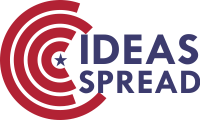From the Arctic to the Tropics: A Thematic Analysis of Teacher Candidates’ Reflections of Two Cross-Cultural Programs
Abstract
This study describes how one university prepares culturally responsive teacher candidates through Alaska and Thailand cross-cultural summer study trips. The study addressed the impact of the Alaska and Thailand cross-cultural experiences on teacher candidates as described in their reflective writings. The reflections addressed their socialization and depth of understanding and appreciation of children and adults from another culture. The authors looked for parallel themes that emerged as characteristics of both experiences.
References
Armstrong, N. F. (2008). Teacher education in a global society: Facilitating global literacy for preservice candidates through international field experiences. Teacher Education and Practice, 21(4), 490-506. Retrieved from https://eric.ed.gov/?id=EJ869452
Clandinin, D. J., & Connelly, F. M. (2000). Narrative inquiry: Experience and story in Qualitative Research. Jossey-Bass Publishers. https://doi.org/10.1080/0309826060 107134
Clement, M. C., & Outlaw, M. E. (2002). Student teaching abroad: Learning about teaching, culture, and self. Kappa Delta Pi Record, 38(4), 180-183. https://doi.org/10.1080/00228958.2002.10516370
Cushner, K. (2009). Human diversity in education: An integrative approach. McGraw-Hill. Denzin, N. K. & Lincoln, Y. S. (Eds.), Handbook of Qualitative Research. 118-137.
DeVillar, R. A., & Jiang, B. (2012). From student teaching abroad to teaching in the U.S. classroom: Effects of global experiences on local instructional practice. Teacher Education Quarterly, 39(3), 7-24. Retrieved from https://files.eric.ed.gov/fulltext/EJ1001435.pdf
Dunlap, J. C. (2006). Using guided reflective journaling activities to capture students’ changing perceptions. TechTrends, 50(6), 20-26. https:doi.org/10.1007/s11528-006-7614-x
Dyment, J. E., & O’Connell, T. S. (2011). Assessing the quality of reflection in student journals: A review of the research. Teaching in Higher Education, 16(1), 81-97. https://doi.org/10.1080/13562517.2010.507308
Entwistle, N. (1997). Contrasting perspectives on learning. In F. Martan, D. Hounsell, & N. Entwistle (Eds.), The experience of learning: Implications for teaching and studying in higher education (2nd ed. Pp. 3-22). Scottish Academic Press.
Farabaugh, R. (2007). ‘The isle is full of noises’: Using wiki software to establish a discourse community in a Shakespeare classroom. Language Awareness, 16(1), 41-56. https://doi. org/10.2167/la428.0
Fry, G. W., Paige, R. M., Joh, J. Dillow, J., & Nam, K. (2009). Study abroad and its transformative power. Occasional Papers: On International Educational Exchange, 32. Retrieved from https://www.researchgate.net/publication/237606252_Study_Abroad_and_Its_Transformative_Power
Garcia, E., Arias, M. B., Harris Murri, N. J., & Serna, C. (2009). Developing responsive teachers: A challenge for a demographic reality. Journal of Teacher Education, 61(1-2), 132-142. https://doi.org/10.1177/0022487109347878
Geertz, C. (1973). The Interpretation of Cultures: Selected Essays. Basic Books.
Guba, E. G., & Lincoln, Y. S. (1994). Competing paradigms in qualitative research. Handbook of qualitative research (pp. 105-117). SAGE Publications. Retrieved from https://ethnographyworkshop.files.wordpress.com/2014/11/guba-lincoln-1994-competing-paradigms-in-qualitative-research-handbook-of-qualitative-research.pdf
Holstein, J. A., & Gubrium, J. F. (1994). Phenomenology, ethnomethodology, and interpretive practice. In N.K. Denzin, & Y. S. Lincoln (Eds.), Handbook of qualitative research (pp. 262- 272). SAGE Publications
Jackson, P. W. (ed.) (1992). Handbook of research on curriculum: A project of the American Educational Research Association. Macmillan Publications.
Larson, L., & Brown, J. S. (July-Sept 2017). Preparing global-ready teachers. Kappa Delta Pi record, 53, 110-115. https://doi.org/10.1080/00228958.2017.1334473
Lee, J. (2011). International field experience: What do student teachers learn? Australian Journal of Teacher Education, 36(10), 1-22.https://doi.org/10.14221/ajte.2011v36n10.4
Longview Foundation. (2008). Teacher preparation for the global age: The imperative for change. Retrieved from http://www.longviewfdn.org
Lonner, W. J., & Hayes, S. A. (2004). Understanding the cognitive and social aspects of intercultural competence. In R.J. Sternbert, & E.L. Grigorenko (Eds.), Culture and competence: Contexts of life success, 89-110. American Psychological Association.https://doi.org/10.1037/10681-004
Mansilla, V. B., & Jackson, A. W. (2014). Educating for global competence: Redefining learning for an interconnected world. In H. H. Jacob (Ed.), Mastering global literacy, 5-29. Solution Tree Publications. Retrieved from https://pz.harvard.edu/sites/default/files/Educating%20for%20Global%20Competence%20Short%20HHJ.pdf
Moon, J. (2006). Learning journals: A handbook for reflective practice and professional development (2nd ed.). Routledge Falmer Publications.
Quezada, R. (2004). Beyond educational tourism: Lessons learned while student teaching abroad. International Education Journal, 5(4), 458-465.Retrieved from https://www.researchgate.net/publication/228878284_Beyond_educational_tourism_Lessons_learned_while_student_teaching_abroad
Quezada, R. L., & Alfaro, C. (2007). Biliteracy teachers’ self-reflections of their accounts while student teaching abroad: Speaking from “the other side.” Teacher Education Quarterly, 34(1), 95-113. Retrieved from https://files.eric.ed.gov/fulltext/EJ795145.pdf
Savicki, V. (2010). Implications of early sociocultural adaptation for study abroad students. Frontiers: The International Journal of Study Abroad, 19, 205-223. https://doi.org/10.36366/frontiers.v19i1.283
Schon, D. A. (1983). The reflective practitioner: How professionals think in action. Basic Books. Schon, D. A. (1987). Educating the reflective practitioner. San Francisco: Jossey-Bass.
Schon, A. (1992). The reflective turn: Case studies in reflective practice. Teachers College Press. https://doi.org/10.1177/002248719104200409
Schwandt, T. A. (1994). Constructivist, interpretivist approaches to human inquiry. In N. Denzin, & Y. Lincoln (Ed.) (1994). The Landscape of Qualitative Research: Theories and Issues (pp. 221-259). SAGE Publications. Retrieved from https://www.researchgate.net/profile/Thomas-Schwandt/publication/232477264_Constructivist_Interpretivist_Approaches_to_Human_Inquiry/links/557048d908aeab777228bfef/Constructivist-Interpretivist-Approaches-to-Human-Inquiry.pdf
Sleeter, C. (2007). Preparing teachers for multiracial and underserved schools. In E. Frankenbert, & G. Orfield (Eds.), Lessons in integration: Realizing the promise of racial diversity in American schools, 171-190. University of Virginia Press.
Stachowski, L., Richardson, W. J., & Henderson, M. (2003). Student teachers report on the influence of cultural values on classroom practices and community involvement: Perspectives from the Navajo reservation and from abroad. The Teacher Educator, 39(1), 52-63. https://doi.org/10.1080/08878730309555329
Tolisano, D. R. (2014). The globally connected educator: Talking to the world---not just about the world. In H. H. Jacob (Ed.), Mastering global literacy, 31-51. Solution Tree.
Triandis, H. C. (1994). Culture and social behavior. McGraw-Hill.
Zhao, Y. (2010). Preparing globally competent teachers: A new imperative for teacher education. Journal of Teacher Education, 61(5), 422-431. https://doi.org/10.1177/0022487110375802

This work is licensed under a Creative Commons Attribution 4.0 International License.
Copyright for this article is retained by the author(s), with first publication rights granted to the journal.
This is an open-access article distributed under the terms and conditions of the Creative Commons Attribution license (http://creativecommons.org/licenses/by/4.0/).








1.png)

















